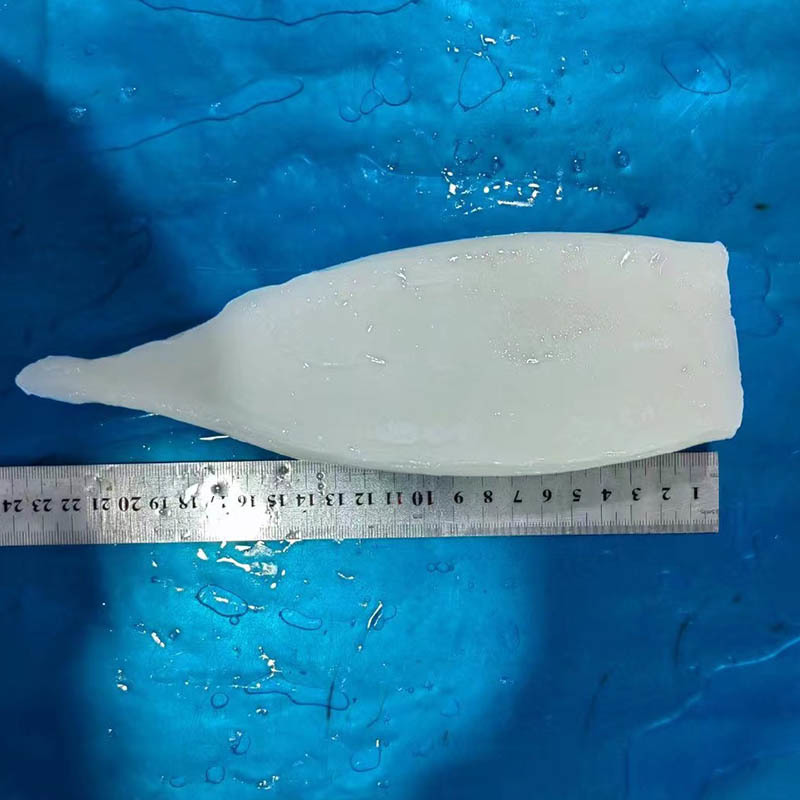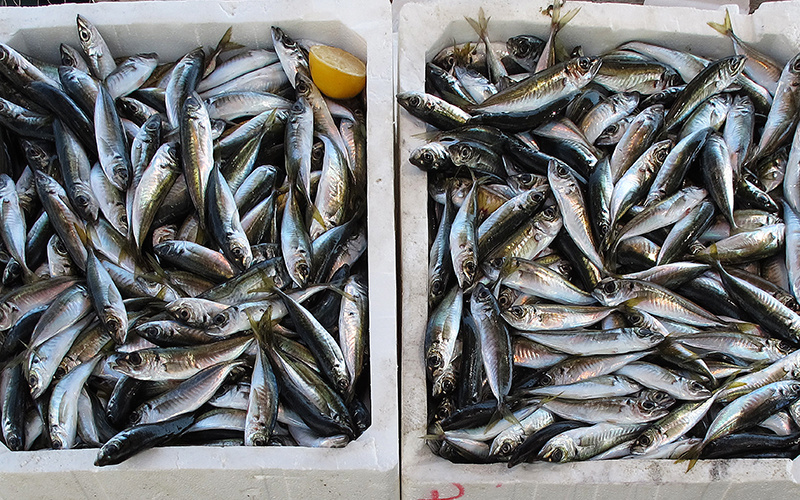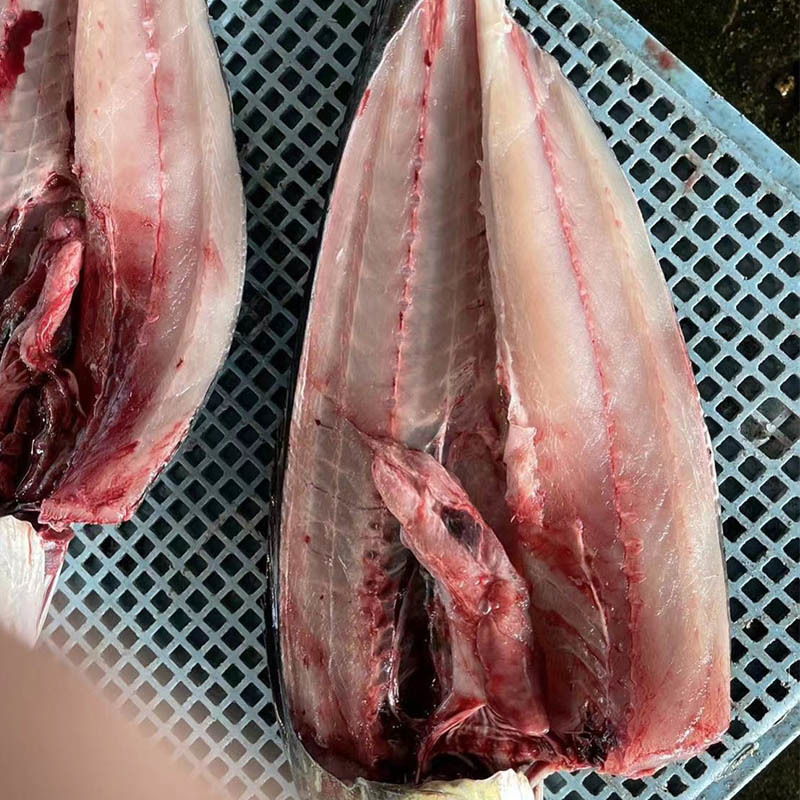The company's mission is to provide high-quality seafood to global buyers.
WhatsApp / WeChat : +8618659702877
Sustainable Fishing Practices for Giant Squid: Protecting Our Oceans
2025-09-30
Sustainable Fishing Practices for Giant Squid: Protecting Our Oceans
Table of Contents
1. Introduction to Sustainable Fishing
2. The Role of Giant Squid in Marine Ecosystems
3. Challenges Facing Giant Squid Fisheries
4. Sustainable Fishing Practices for Giant Squid
5. The Role of Technology in Sustainable Fishing
6. Case Studies of Successful Sustainable Fishing
7. The Importance of
Sustainable Fishing Practices for Giant Squid: Protecting Our Oceans
Table of Contents
- 1. Introduction to Sustainable Fishing
- 2. The Role of Giant Squid in Marine Ecosystems
- 3. Challenges Facing Giant Squid Fisheries
- 4. Sustainable Fishing Practices for Giant Squid
- 5. The Role of Technology in Sustainable Fishing
- 6. Case Studies of Successful Sustainable Fishing
- 7. The Importance of Policy and Regulation
- 8. The Future of Giant Squid Fisheries
- 9. Conclusion
- 10. Frequently Asked Questions
1. Introduction to Sustainable Fishing
Sustainable fishing is an essential practice that seeks to balance the needs of marine ecosystems with human consumption. As a critical component of global food security, fish species like the giant squid play a significant role in the ocean's health. To ensure that these creatures can thrive for generations to come, we must adopt sustainable fishing practices that not only protect the ocean environment but also secure the livelihoods of fishing communities.
2. The Role of Giant Squid in Marine Ecosystems
Giant squids are fascinating creatures that inhabit deep ocean waters. They are an integral part of the marine food web, serving as both predator and prey. By consuming fish and other marine organisms, giant squids help maintain a balanced ecosystem. Furthermore, they are prey for larger species such as sperm whales, demonstrating their role in the ocean's intricate food chain.
A healthy population of giant squids contributes to biodiversity, which is vital for the resilience of marine ecosystems. Protecting these creatures ensures the stability of their habitat, which in turn supports myriad other species.
3. Challenges Facing Giant Squid Fisheries
Despite their significance, giant squid populations face numerous threats. Overfishing, habitat loss, and climate change are among the primary challenges affecting their sustainability.
Overfishing, driven by high demand for squid in culinary markets, puts immense pressure on their populations. Additionally, traditional fishing methods can result in bycatch, harming other marine species and disrupting ecosystems. Climate change further complicates the situation by altering ocean temperatures and currents, impacting giant squid habitats and food availability.
These challenges underscore the urgent need for sustainable fishing practices to safeguard the future of giant squid and the broader marine environment.
4. Sustainable Fishing Practices for Giant Squid
Implementing sustainable fishing practices is essential for maintaining giant squid populations and the health of our oceans. Here are several strategies that can be adopted:
4.1 Responsible Harvesting Techniques
Utilizing responsible harvesting techniques is crucial. This includes using selective gear that minimizes bycatch and protects juvenile squid. For instance, employing circle hooks and specialized nets can help reduce the capture of non-target species.
4.2 Establishing Fishing Quotas
Setting catch limits based on scientific assessments can help prevent overfishing. By establishing quotas that align with the reproductive capacity of giant squid populations, fisheries can ensure that their practices remain sustainable while allowing ecosystems to recover.
4.3 Seasonal Fishing Restrictions
Implementing seasonal fishing restrictions can be beneficial, particularly during spawning periods. Allowing giant squids to reproduce unhindered ensures population sustainability and contributes to the overall health of marine ecosystems.
4.4 Community-Based Fisheries Management
Engaging local communities in fisheries management fosters stewardship and accountability. By involving fishermen in decision-making processes and providing education on sustainable practices, communities can develop a vested interest in preserving their marine resources.
5. The Role of Technology in Sustainable Fishing
Advancements in technology have the potential to revolutionize sustainable fishing practices for giant squid. Here are a few key developments:
5.1 Satellite Monitoring
Satellite technology enables real-time monitoring of fishing activities, helping to ensure compliance with regulations and reducing illegal fishing. This transparency allows for better management of squid populations and habitats.
5.2 Data Analytics
Utilizing data analytics can provide insights into giant squid migration patterns, breeding habits, and environmental conditions. This information can inform effective management strategies and improve sustainability efforts.
5.3 Eco-Friendly Fishing Gear
The development of eco-friendly fishing gear minimizes environmental impact and bycatch. Innovations such as biodegradable nets and traps designed to reduce bycatch can significantly contribute to more sustainable fishing practices.
6. Case Studies of Successful Sustainable Fishing
Examining successful case studies can provide valuable lessons for promoting sustainable fishing practices.
6.1 The Falkland Islands
The Falkland Islands implemented stringent quotas and monitoring systems for their squid fisheries, leading to a successful recovery of their giant squid populations. This proactive approach underscores the importance of science-based management.
6.2 Spain’s Conservation Efforts
In Spain, collaborative projects between the government and fishing communities have led to the development of sustainable fishing practices for giant squid. These initiatives emphasize education and community involvement, resulting in healthier marine ecosystems.
7. The Importance of Policy and Regulation
Effective policies and regulations are fundamental to the success of sustainable fishing practices. Governments play a crucial role in:
7.1 Enforcing Regulations
Establishing and enforcing regulations that govern fishing practices ensure compliance and promote sustainability. Penalties for violating these regulations can deter illegal fishing and protect marine resources.
7.2 Supporting Research and Development
Investing in research and development related to marine ecosystems and fisheries management is vital. Government funding can support innovative sustainable fishing technologies and practices, contributing to better outcomes for giant squid and the oceans.
8. The Future of Giant Squid Fisheries
The future of giant squid fisheries hinges on our ability to adopt sustainable practices. By prioritizing responsible fishing methods, implementing effective policies, and embracing technological advancements, we can create a balanced approach that protects our oceans while meeting human needs.
As awareness of sustainable fishing continues to grow, more stakeholders—including consumers—will play a vital role in advocating for responsible practices. Encouraging sustainable seafood choices can drive demand for products harvested through environmentally friendly methods, supporting the ongoing health of marine ecosystems.
9. Conclusion
In conclusion, sustainable fishing practices for giant squid are essential to protecting our oceans and ensuring the well-being of marine ecosystems. By prioritizing responsible harvesting techniques, embracing technology, and fostering community engagement, we can work towards a future where giant squids and their habitats thrive. The collective effort of fishermen, policymakers, scientists, and consumers is crucial in safeguarding these remarkable creatures for generations to come.
10. Frequently Asked Questions
What are sustainable fishing practices?
Sustainable fishing practices involve methods that maintain fish populations and ecosystems while allowing for human consumption. These practices aim to reduce overfishing, bycatch, and habitat destruction.
Why is the giant squid important to marine ecosystems?
Giant squid are vital components of the marine food web, serving as both predator and prey. Their presence contributes to biodiversity, helping maintain balanced ecosystems.
What challenges do giant squid face?
Giant squid face challenges such as overfishing, habitat loss, and climate change, which threaten their populations and marine environments.
How can technology help sustainable fishing?
Technology can aid sustainable fishing through advancements like satellite monitoring, data analytics, and the development of eco-friendly fishing gear, improving management and reducing environmental impact.
What role do policies play in sustainable fishing?
Policies are crucial for enforcing regulations, supporting research, and ensuring compliance, all of which foster sustainable fishing practices and protect marine resources.
Giant Squid/Peru Squid
RELEVANT INFORMATION
Sustainable Fishing Practices for Giant Squid: Protecting Our Oceans
Sustainable Fishing Practices for Giant Squid: Protecting Our Oceans
Table of Contents
1. Introduction to Sustainable Fishing
2. The Role of Giant Squid in Marine Ecosystems
3. Challenges Facing Giant Squid Fisheries
4. Sustainable Fishing Practices for Giant Squid
5. The Role of Technology in Sustainable Fishing
6. Case Studies of Successful Sustainable Fishing
7. The Importance of
2025-09-30
Maximizing Opportunities in the Frozen Pacific Mackerel Market
The frozen Pacific mackerel, known for its rich flavor and nutritional benefits, is becoming a staple in global seafood markets. Understanding this product and its market dynamics can offer significant opportunities for professionals in the agricultural food industry, particularly those focused on frozen products.
Firstly, it’s essential to recognize the health benefits associated with frozen Paci
2025-09-27
Frozen Red Pacu: Elevate Your Quick Meal Game with Deliciousness and Convenience
Frozen Red Pacu: Elevate Your Quick Meal Game
Introduction to Frozen Red Pacu
In the fast-paced world we live in, convenience often takes precedence in our meal choices. The **Frozen Red Pacu** not only provides a quick solution for meal preparation but also brings a unique taste that can enhance any dish. Native to the Amazon River basin, this freshwater fish is known for its mild flavor and meat
2025-09-24







